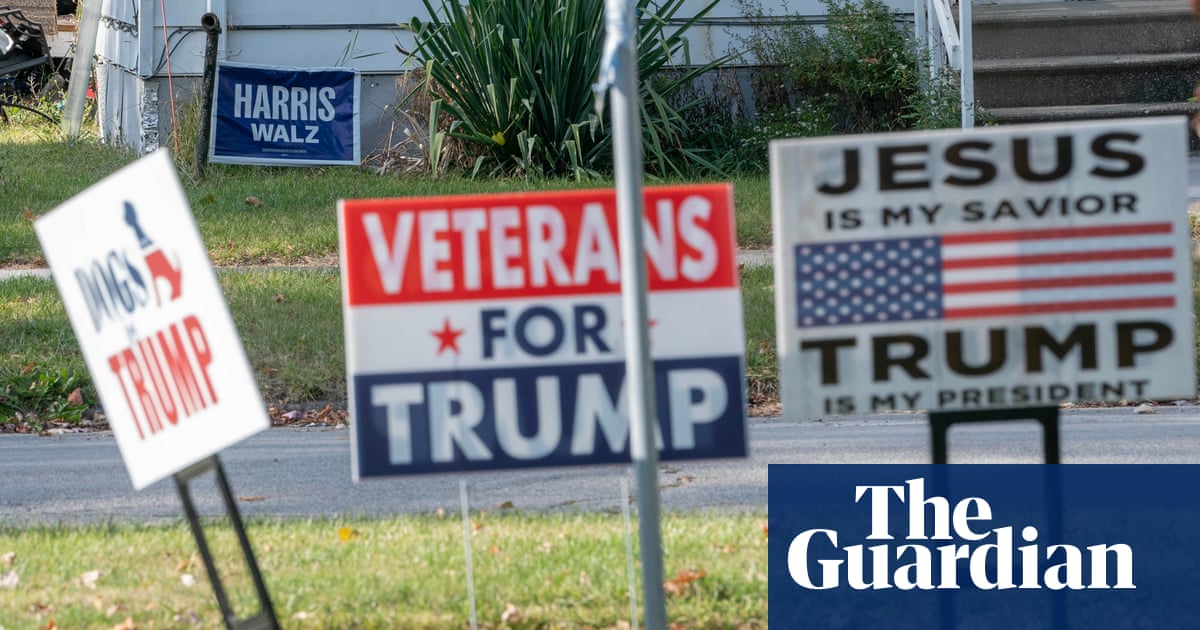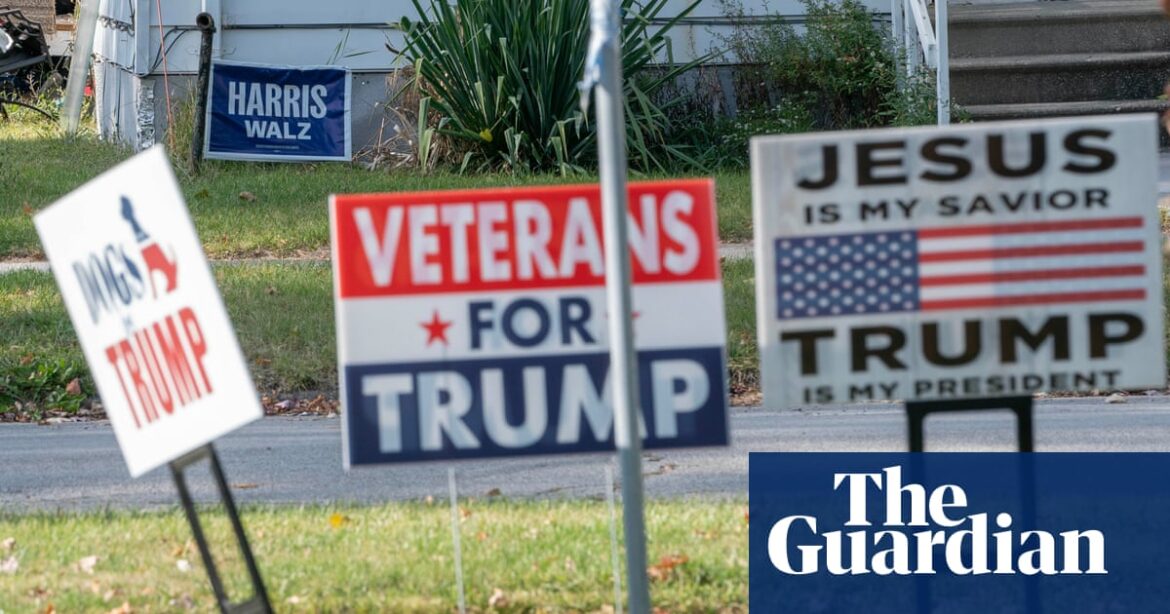
There are few entities that embody the close, fraternal ties between the US and Canada quite like the Saginaw Spirit junior ice hockey team.
In a place whose fortunes have been more down than up in recent decades, the Dow Event Center hockey arena in Saginaw, Michigan, comes alive with more than 5,000 fans once these young stars take to the ice. A huge banner depicting the players adorns the main street into the city.
Nearly all the players, aged 16 to 20, come from Canada, and stay with local Saginaw families during the regular playing season, which runs from September to April.
“They are family, almost literally,” says Jimmy Greene, the Spirit’s vice-president of marketing and community relations, “because players come over here and stay with American families. It’s more than just sport.”
One of the top prospects of this year’s National Hockey League entry draft is forward Michael Misa, the Spirit’s 18-year-old Canadian captain. Last year, the Saginaw Spirit won the Memorial Cup of the Ontario Hockey League for the first time. In the season that recently finished, the Spirit played 28 times on Canadian soil.
So the fallout from Donald Trump’s tariffs regime on Canadian goods has been felt more keenly in Saginaw than most other communities – as has the fight over the Canadian election, with the US president’s jibes over Canada becoming the US’s 51st state looming over the contest amid a fierce backlash against such comments.
“We’ve had this relationship for decades and all of a sudden, in the last couple of months, it’s been uprooted,” says Greene.
“Of course, you’re going to be concerned because you just don’t know [what will happen next]. At some point, it’s going to end up costing us. I just don’t know what extent and by how much.”
As the largest city in the northern half of Michigan located within a short drive of three Canadian border crossings, Saginaw has closer ties to Canada than perhaps any other community of its size. Canadian companies own close to 4,000 acres (1,600 hectares) of farmland in the county, and last year, Saginaw established its first sister-city ties with a Canadian counterpart.
What’s more, it is a key political bellwether and manufacturing county that helped push Donald Trump over the line in last November’s presidential election, but today the community faces uncertainty around the trade war with Canada.
Michigan, with its vast automotive manufacturing industry, is set to be affected by Trump’s trade battle with Canada more than perhaps any other US state.
After Trump announced 25% tariffs on Canadian vehicles and parts – with some exemptions – Ottawa responded with its own 25% tariff on certain US automotive products. Canada says the tariffs are unjustified, but on 23 April Trump warned that the tariff figures could go up.
While Trump has claimed the US doesn’t need goods produced by its northern neighbor, Canada buys more American products than any other country, at $356bn worth of purchases. Nearly 40% of Michigan’s exported goods go to Canada. In 2023, $1.7bn worth of goods made in the Saginaw metropolitan area were exported, one of the highest amounts for any Michigan city, with much of that sent to Canada.
Nexteer Automotive employs around 5,000 people in Saginaw while Means Industries, an automotive parts company headquartered in the city, also has a base in London, Ontario. Repeated calls and emails sent by the Guardian to Saginaw’s chamber of commerce seeking information on specific local industries potentially affected by the tariffs were not responded to.
‘Sport right now triumphs over politics’
Saginaw is no stranger to economic ups and downs.
On a recent Friday afternoon, the downtown area is almost dead. Despite the recent success of the hockey team, there isn’t a sports bar for blocks in any direction as most of Saginaw’s commercial activity is now concentrated around miles of strip malls north of downtown.
For Brad Pyscher, an officer at a correctional facility and former union president who, on a recent Saturday afternoon, is manning the Saginaw county Republican party office in one of these strip malls, the tariffs on Canada were something of a shock.
“People are concerned, and they hope this works itself out,” he says. “The shock and awe [of the tariffs] really took everyone by surprise.”
The 54-year-old says he had voted independent all his life before backing Democrat Barack Obama, and then Trump for president in 2016.
“The thing with Trump, whether you like him or don’t like him, there’s transparency,” he says. “I’m drawn to him because he is not a politician.”
But Pyscher concedes that Trump could have negotiated with Canada before “hitting them with that shock and awe. I think it’s on purpose, to let the world know he can do it,” he says.
“[With] Canada, it should have been negotiated a bit better, a lot better. I’m expecting the deals with Canada to come soon, and we can all put this behind us.”
Trump has said one of his main motivations for issuing tariffs on Canada was to stop the flow of illicit drugs into the US. However, reports indicate the opposite may be happening. Last month, $11m worth of cocaine was seized at the Port Huron border crossing, 80 miles (130km) east of Saginaw – on its way into Canada. In December, around 1,000lb (450kg) of cocaine were also seized in a semi-truck attempting to enter Ontario from the same border crossing.
Back in the world of ice hockey, Greene of Saginaw Spirit says he feels most people he interacts with have been able to park their political feelings, starting with the organization’s Canadian players, who have been essential to the team’s recent success.
“I think we all made a concerted effort, while not to keep [the players] dumb and naive, we did enough to make them feel comfortable in our environment and away from the political stuff. We kept them in a mindset of sport,” he says.
But Greene also realizes the strained ties with Canada fueled by the White House’s policies are a very real dynamic.
“I’m not immune to the idea that at some point Canada had some hostile feelings towards us, but people have, until this point, been able to park the politics away from sport. I think sport right now triumphs over politics,” he says.
“Because we play in Canada, and [because of] the tariffs. I’m more concerned about how they feel about us. Our feelings towards Canada have been and always will be favorable and friendly. I’m concerned not just because of the economic tariffs, but because of the emotions that come from that. I’d be foolish to pretend otherwise.”
Saginaw residents are hoping the kind of fraternal ties that were on display across the city last May, when hundreds of Canadian hockey fans from as far away as Saskatchewan descended on the region for the Memorial Cup, won’t become a thing of the past.
“Everybody’s been super friendly. You guys have been incredible hosts,” one Canadian hockey fan who drove 11 hours from Quebec for the tournament told local media.
Source: theguardian.com



